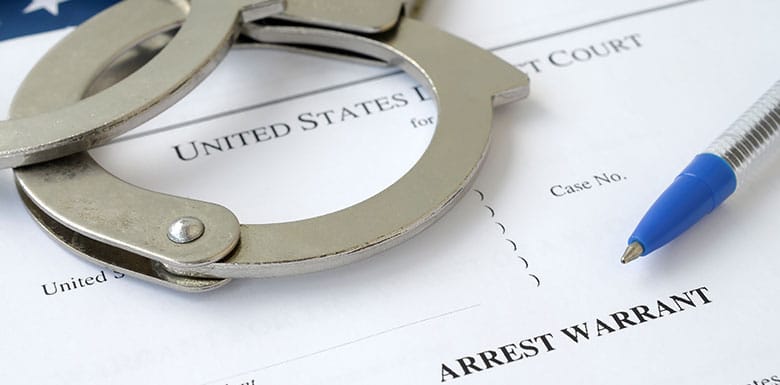Can/Should You Represent Yourself in a Criminal Case?
When facing criminal charges, you may be leery about trusting someone else to fight for your freedom. However, not all criminal defendants have the right to represent themselves. A judge must determine that you are competent to do so before you can consider self-representation.
Even if you can represent yourself, it may not be in your best interests to do so. When your future is on the line, you need an experienced criminal defense attorney who knows the ins and outs of the criminal justice system. Contact Morris Law for a confidential review of the charges against you.
Can You Represent Yourself in California?
Under the law, you have the right to represent yourself when you have been accused of criminal charges. However, you must meet specific eligibility requirements if you hope to do so.
Legal Right to Represent Yourself
Under the Sixth Amendment of the US Constitution, you have several rights when accused of a criminal offense. Some of these include:
- The right to an impartial jury
- The right to a speedy trial
- The right to know the criminal charges filed against you
- The right to a public trial
- The right to legal representation, even if you cannot afford to hire one
- The right to represent yourself at trial
However, just because you have the right to represent yourself does not necessarily mean you are mentally competent enough to do so. The judge presiding over your case will review the evidence to determine whether they believe you are capable of standing trial and representing yourself.
Requirements For Representing Yourself
If you hope to represent yourself at trial, you must meet certain requirements. Some of these criteria include:
- Your education level
- Your familiarity with the English language
- Your age
- The severity of the criminal offense you have been accused of
The judge will review your case’s aggravating and mitigating factors to determine whether you are competent enough to understand the charges against you and represent yourself at trial. If the judge believes you understand that you are giving up your right to an attorney and comprehend the severity of the charges against you, you may be entitled to represent yourself at trial.
Why Would Someone Want to Represent Themselves?
Defendants have a variety of reasons for attempting to represent themselves at trial. When you face harsh penalties associated with the charges against you, having an experienced legal defender on your side could make all the difference in the outcome of your case. Still, many defendants may choose to represent themselves when:
- They believe that since a former attorney failed to produce a favorable outcome in their case, they are better off handling their defense on their own
- They do not believe the consequences of a conviction are severe enough to warrant the cost of hiring a criminal defense attorney
- They can gain additional privileges, including access to the prison or jail law library if they represent themselves
- They plan to plead guilty to the offense and believe hiring a criminal defense lawyer will not make a difference
- They aim to make a political statement through self-representation
It is important to know that many defendants who represent themselves may not understand how the criminal justice system works or what to expect from the proceedings against them. When this happens, this can backfire and have a devastating impact on the outcome of your case.
For this reason, it may be ill-advised to choose self-representation when you are capable of hiring a competent and experienced criminal defense lawyer to advocate for your freedom.
You Can Represent Yourself. But Should You?
Just because you have the ability to represent yourself at trial does not mean you should. There is a virtual consensus across the criminal justice system that self-representation is typically a poor choice for most defendants.
Unless you have considerable training or experience as a criminal defense lawyer, it may not be in your best interests and could have a severe impact on your future if you choose self-representation.
Lack of Legal Knowledge or Training
It takes many years of experience to understand and learn the intricacies of the criminal justice system and laws, not to mention how court procedures work. When you do not have the legal knowledge or expertise to handle a criminal offense, it may not be wise to represent yourself.
You Are Less Likely to Win and Could Make Matters Worse
You might think you are doing yourself a favor by representing yourself, but it could actually harm your case. The judge presiding may be intolerant of your lack of knowledge, which could negatively impact the verdict. The state’s prosecuting attorney will have years of experience in law and legal procedures.
Even Minor Crimes Can Be Tough to Navigate
Even if you are only facing seemingly minor charges, such as a misdemeanor offense, it may be more challenging to navigate than you thought. With help from an attorney, you could be eligible for a pretrial diversion program or plea agreement instead of being penalized for a misdemeanor offense.
You May Not Know Your Rights Like an Attorney Does
Although you know you have rights when you are accused of a crime, you probably don’t understand them the way a criminal defense attorney would. This could lead to the state’s prosecuting attorney being able to take advantage of you during your greatest time of need.
Don’t Risk Your Future
Failure to represent yourself adequately at trial could have devastating consequences. With help from a lawyer, you might have been able to enter a pretrial diversion program or get the charges against you reduced or dismissed entirely.
However, without a legal advocate by your side, you risk facing additional criminal charges that may not be relevant, and A harsher sentence. You can take steps to protect your future by getting help from a felony lawyer in Oakland to clear your name of the charges against you.
Meet With a Criminal Defense Attorney for Help Today
When your liberty is on the line, and the consequences of a conviction could have a devastating impact on your life, it may not be in your best interests to attempt to defend yourself.
Instead, contact a knowledgeable and highly experienced criminal defense lawyer at Morris Law for a confidential defense strategy session. Schedule yours by filling out our secured contact form or calling our office at 510-225-9955



